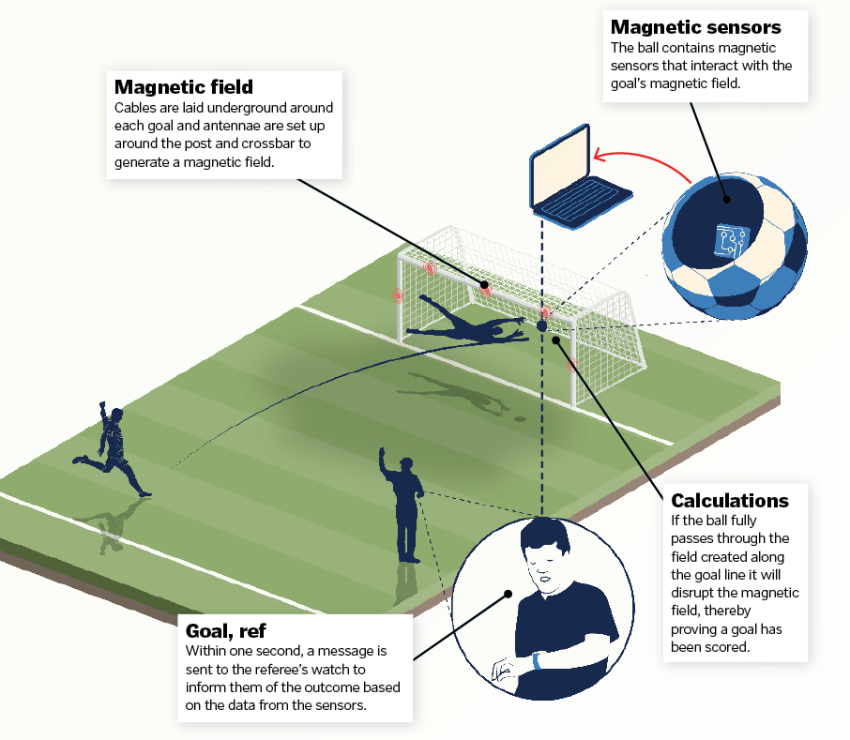VAR and technology in football have transformed the way the game is played and officiated, sparking both excitement and controversy. As the Video Assistant Referee system gains traction, discussions about the impact of VAR are at the forefront of football debates, highlighting its role in enhancing accuracy in officiating. Coupled with the advancements in football technology and data analytics, these innovations shape not just how matches unfold but also how fans engage with the sport. However, VAR controversies have emerged as a significant aspect of this evolution, challenging traditional notions of football officiating. In this exploration, we will examine the profound impact of VAR and technology on football, addressing both the advancements and concerns raised by their usage.
The integration of technology in the beautiful game has created a new landscape where traditional paradigms are being reconsidered. The introduction of the Video Assistant Referee (VAR) system is a prime example of how the sport is evolving, bringing forth enhanced methods of officiating that utilize advanced video technology. This shift has also brought analytics in football to the limelight, allowing teams to make strategic decisions based on comprehensive data analysis. Yet, the adaptation to such innovations remains contentious, particularly with respect to the controversies surrounding VAR’s implementation. In this discussion, we will investigate how these technological advancements are reshaping football, emphasizing their influence on match officiating and overall player performance.
The Advantages of VAR Technology in Football Officiating
The introduction of Video Assistant Referee (VAR) has significantly improved the standard of officiating in football. By allowing referees to review critical match moments through video footage, VAR has enabled improved accuracy in decision-making. This technology minimizes the chances of blatant errors that could affect the outcome of a match, promoting fairness and integrity within the sport. With the integration of VAR, there is a collective confidence in the officiating process, which supports players and fans alike in their pursuit of fair play.
Moreover, the application of VAR has extended beyond simply correcting refereeing errors; it has shifted the paradigm of how the game is viewed. Fans now expect a higher level of scrutiny and transparency concerning officiating decisions. For instance, when a goal is ruled out for an offside that could have easily gone unnoticed, VAR ensures that such moments are thoroughly examined, which not only reinforces the accuracy of the calls but also engages the audience in a more profound understanding of the game’s intricacies.
VAR Controversies: The Challenges Faced by Football Technology
Despite its advantages, the Video Assistant Referee (VAR) system has been riddled with controversies that have sparked heated debates among fans and analysts. One of the primary criticisms is the time taken to review plays, often leading to interruptions in the game that can frustrate players and supporters. The emotional rollercoaster created when a goal celebration is paused for a VAR check has led to a sense of disconnection for fans who thrive on the immediate excitement of football. Issues regarding the clarity of communication surrounding the decisions made by VAR officials add another layer of complexity to its application in matches.
Additionally, examples of VAR controversies have raised questions about consistency in officiating, leading to accusations of bias and unfairness. Key matches decided by controversial VAR calls have prompted outrage from clubs and supporters, further intensifying the debate around its effectiveness. Questions of how technology should supplement human decision-making in football continue to be pivotal in discussions about VAR’s future. The ongoing dialogues, such as those highlighted during the **UEFA VAR Symposium**, demonstrate a concerted effort from the football community to address these concerns and enhance the overarching familiarity with VAR’s role in our beloved sport.
Frequently Asked Questions
What is the impact of VAR technology on football officiating?
The Video Assistant Referee (VAR) technology significantly impacts football officiating by aiming to reduce human error in crucial decision-making. By allowing referees to review pivotal moments through video footage, VAR enhances the accuracy of calls related to goals, penalty decisions, and red cards. However, its implementation has sparked controversies regarding the disruption of game flow and the clarity of decisions. Despite these challenges, VAR represents a shift towards more technology-driven officiating, reflecting the importance of innovation in maintaining fairness in football.
How has football technology and analytics changed the game?
Football technology, particularly through VAR and analytics, has revolutionized how the game is played and perceived. VAR aids referees in making accurate decisions, tackling the significant issues of human error in officiating. Additionally, the rise of analytics in football provides teams with valuable insights into player performance, strategy optimization, and match predictions, ultimately enhancing team competitiveness. This blend of technology and analytics not only improves on-field performance but also enriches fan engagement, showcasing the integral role of data in modern football.
| Aspect | Details |
|---|---|
| Introduction | Football has evolved with technology, especially with VAR and analytics impacting officiating and player performance. |
| VAR Introduction | VAR was set up to correct significant referee mistakes using video reviews, gaining adoption across major leagues. |
| Debates Surrounding VAR | Critics argue VAR interrupts game flow and leads to confusion, with controversial decisions affecting match outcomes. |
| UEFA VAR Symposium | Held in April 2025, it focused on improving VAR’s application and enhancing fairness in refereeing across football. |
| Conclusion | Continuous discussions are aimed at refining VAR technology to uphold football’s integrity. |
Summary
VAR and technology in football have fundamentally transformed the way the sport is officiated and analyzed. The integration of Video Assistant Referee systems has not only aimed to improve decision-making accuracy but has also sparked significant discussions regarding its impact on gameplay. While VAR technology addresses crucial officiating challenges, it has also introduced complexities, leading to varied opinions among fans and stakeholders. The ongoing dialogue around VAR’s efficiency and its role in promoting fair play reflects football’s constant evolution, highlighting the balancing act between tradition and innovation in the beautiful game.
